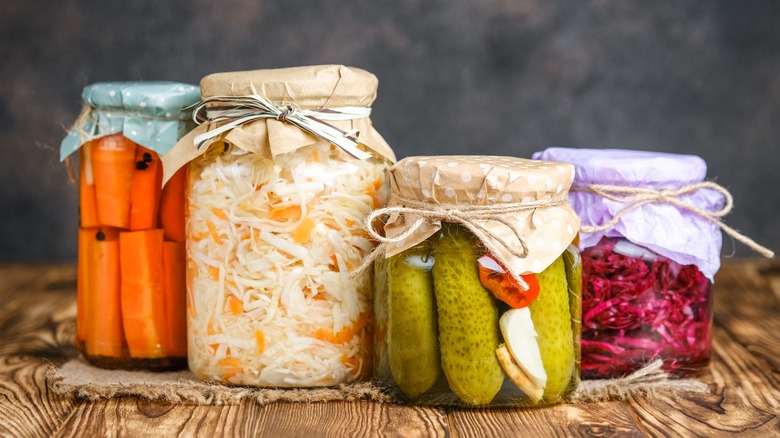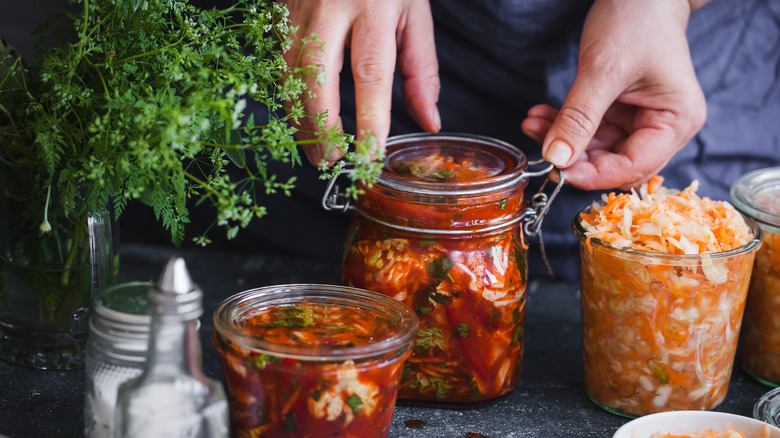The Biggest Mistake To Avoid When Making Lacto-Fermented Pickles
It seems like fermented foods are having a moment in the spotlight as publications like BBC Good Food tout their health benefits, and the legendary Copenhagen restaurant Noma constantly finds new ways to feature them on their menu. There's also an argument to be made that they've never left.
Fermented foods may not be as present as they were when they were our primary means of preserving food (as Cultures for Health explains), but they're still an everyday feature in diets around the globe. Beer, pickled cucumbers, sauerkraut, soy sauce, yogurt, and hot sauces are all common examples of fermented foods and have a regular place at many tables.
If you've been curious to start dipping your toes into the world of lacto-fermented pickles or other foods, then it's important to know what you're doing. Thankfully, it's a lot easier to get started than it seems. While it might appear intimidating, Cultures for Health says that fermented foods are actually some of the safest to try making on your own. Most pickles that are canned at home are made by simply fixing up a vinegar brine that prevents bacterial growth, but lacto-fermentation is a great way to add longevity to your canned pickles. It's a process that involves using the natural lactic bacteria to raise the acidity in your brine and help preserve your pickles for months. It also adds plenty of flavor, and possible health benefits as well.
Lacto-fermentation depends on bacteria
Cultures for Health points out that besides choosing the best equipment and making some technical decisions, the process is relatively simple — it mostly involves leaving your pickles alone.
One interesting feature of lacto-fermentation is that it relies on naturally present bacteria to preserve whatever is being pickled. As Serious Eats points out, when canning vegetables or even using a vinegar brine to preserve foods, the key is to disinfect and seal the food away. In canning, this is done using high heat boils or even pressure cookers for low acidity foods. However, in the process of lacto-fermentation, an entirely sterile environment would kill the most important ingredient — bacteria.
According to Serious Eats, lacto-fermentation depends on the lactobacillus bacteria which is present in our environment. It's on our skin, hair, and most foods already. It's what produces the lactic acid that prevents the growth of molds and fungus which would otherwise spoil your foods. Because of this, if you freeze or heat-process your pickles, you'll be killing off that beneficial bacteria, and killing off the health benefits as well. The Mayo Clinic cites lactobacillus as a probiotic bacteria that may help improve gut health when consumed. It will only be present when foods have been properly pickled, however.

